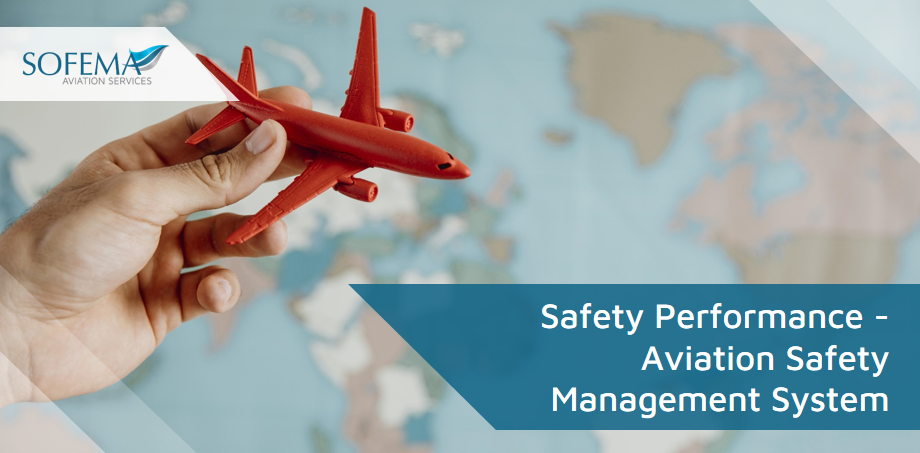Sofema Aviation Services (SAS) www.sassofia.com considers the key elements related to Management Safety Performance within an Aviation Safety Management System
Introduction
An aviation safety management system (SMS) is a systematic approach to managing safety risks within the aviation field. Safety performance management encompasses a holistic approach to managing all aspects of safety risk and requires constant vigilance, adaptability, and commitment from all levels of an organization.
Note – Safety performance is a key component of any SMS, as it helps organizations measure and monitor their effectiveness in managing identified safety risks.
Definition of Safety Performance
- Safety performance in aviation refers to the results achieved in managing the safety risks associated with flight operations, maintenance, and other activities related to aircraft. It involves the continuous monitoring and assessment of safety outcomes to ensure that safety risks are being effectively controlled and reduced to acceptable levels.
Components of Safety Performance – Safety performance can be broken down into several components:
- Safety Metrics and Indicators: These are specific, quantifiable measures used to assess the effectiveness of safety risk controls.
>> Common metrics include the rate of accidents, incidents, and near misses, as well as compliance with safety procedures.
- Proactive and Reactive Measures: Proactive measures involve identifying and mitigating risks before they lead to incidents, whereas reactive measures involve responding to incidents after they occur to prevent recurrence.
- Safety Culture: This encompasses the attitudes, beliefs, perceptions, and values that employees share in relation to safety.
>> A strong safety culture promotes proactive safety management and contributes to better safety performance.
- Evaluation of Safety Performance – Evaluating safety performance within an SMS involves several steps:
>> Systematic collection of data on safety-related events and observations.
>> Analyzing the data to identify trends and areas of risk that require attention.
>> Regularly reviewing safety performance against established safety objectives and targets.
>> Implementing improvements based on performance reviews to enhance the overall safety of operations.
- Challenges in Safety Performance
>> Inadequate or incorrect data can lead to poor safety decisions.
>> Ensuring sufficient resources are allocated to safety management, including training, technology, and personnel.
>> Changes in regulations, technology, and operating environments can impact safety performance.
There is a risk of becoming complacent if safety performance metrics show favourable results consistently, potentially overlooking emerging risks.
Next Steps
Follow this link to our Library to find & download related documents for Free.
For ICAO and EASA Compliant Safety Management System Training available as Classroom, Webinar or Online Training, please see Sofema Aviation Services or Sofema Online. For more information, comments or questions, please contact team@sassofia.com.
Tags:
Risk, safety performance, Safety Culture, Safety Objectives, Aviation Safety Management System, SAS blogs, Challenges, Aviation Safety Management System (SMS), safety-related events, resources, targets




